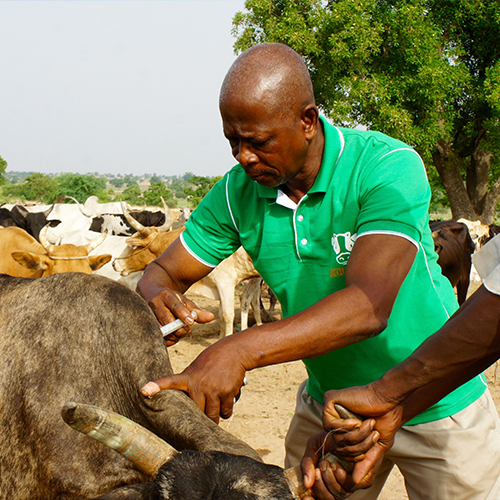VETERINARY AND LIVESTOCK
Veterinary medicine and livestock farming are intrinsically linked in agriculture, with veterinary professionals playing a vital role in maintaining the health and productivity of farm animals. Veterinarians provide essential services like disease prevention and treatment, reproduction management, and guidance on animal welfare and husbandry practices. This ensures healthy livestock, which is crucial for food security, economic stability, and overall agricultural sustainability.

Key Roles of Veterinarians in Livestock Farming:
Disease Prevention and Control:
Veterinarians are at the forefront of preventing and controlling animal diseases, both contagious and non-contagious, through vaccination programs, diagnostics, and treatment.
Reproduction and Breeding:
They assist farmers with breeding practices, including selection of suitable mates, artificial insemination, and managing fertility issues to improve herd genetics and productivity.
Animal Welfare:
Veterinarians ensure that animals are raised and treated humanely, adhering to ethical guidelines and welfare standards.
Public Health Protection:
By inspecting animals for slaughter and products, veterinarians help protect public health from zoonotic diseases and ensure food safety.
Sustainable Livestock Practices:
Veterinarians promote sustainable livestock farming by advising on best management practices, including efficient use of resources, responsible antibiotic use, and reducing environmental impact.
Research and Development:
Veterinarians are involved in research to develop new technologies, diagnostics, and treatments to improve animal health and productivity.
Importance of Veterinary Services:
Economic Benefits:
Healthy livestock are more productive, leading to higher yields and greater profitability for farmers.
Food Security:
A healthy and productive livestock sector is crucial for ensuring food security and meeting the growing demand for animal products.
Animal Welfare:
Veterinary services contribute to the well-being of farm animals, ensuring they are raised in a humane environment.
Public Health:
Veterinarians play a crucial role in protecting public health by preventing zoonotic diseases and ensuring the safety of animal products.
Sustainable Agriculture:
By promoting responsible practices and disease prevention, veterinarians contribute to the long-term sustainability of livestock farming.
In essence, veterinary medicine is an essential pillar of a healthy and sustainable livestock industry, contributing significantly to agricultural productivity, food security, and public health.